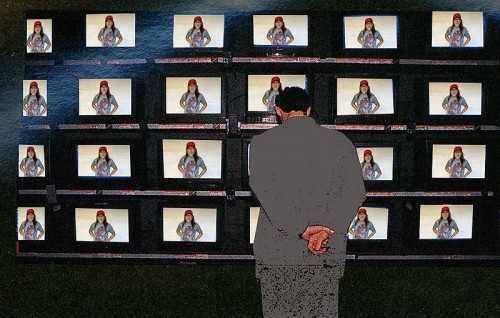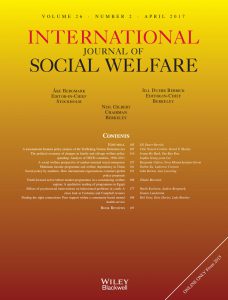Are we informing ourselves into inaction? How much information is too much?
 What does an overload of information do to our decision-making process? This question becomes, at least in part, an issue of simplicity v. complexity, so I am reminded of Durkheim’s classic argument about social integration and regulation. Too much or too little of each causes problems – for him, various types of suicide emerge because of an overbearing or under-restricting/engaging society. Simmel’s conflict over the freedom, yet overwhelming choices of the metropolis also comes to mind. In each of these cases, it is a balance that creates a healthy/functioning individual. Perhaps this is the same with access to information. Too many choices makes it difficult for us to assimilate all the information, but too few choices would presumably not provide us
What does an overload of information do to our decision-making process? This question becomes, at least in part, an issue of simplicity v. complexity, so I am reminded of Durkheim’s classic argument about social integration and regulation. Too much or too little of each causes problems – for him, various types of suicide emerge because of an overbearing or under-restricting/engaging society. Simmel’s conflict over the freedom, yet overwhelming choices of the metropolis also comes to mind. In each of these cases, it is a balance that creates a healthy/functioning individual. Perhaps this is the same with access to information. Too many choices makes it difficult for us to assimilate all the information, but too few choices would presumably not provide us  with as much intellectual stimulation as we might desire. In our world, is there a balance? Or, are we so inundated with information that we’ve just become accustomed to being overwhelmed. Perhaps we’ve learned to filter what’s important to us – or, might we just miss things all the time because we can’t possibly take it all in? I’m sitting here, right now, with the news on TV and several windows open on my computer screen. I’m in the midst of working on several articles at the same time. That is arguably my personal style – perhaps one of chaos – but it is fairly representative of the general environment in which we all exist these days. There is a steady flow of information abounding at all times – everywhere we turn.
with as much intellectual stimulation as we might desire. In our world, is there a balance? Or, are we so inundated with information that we’ve just become accustomed to being overwhelmed. Perhaps we’ve learned to filter what’s important to us – or, might we just miss things all the time because we can’t possibly take it all in? I’m sitting here, right now, with the news on TV and several windows open on my computer screen. I’m in the midst of working on several articles at the same time. That is arguably my personal style – perhaps one of chaos – but it is fairly representative of the general environment in which we all exist these days. There is a steady flow of information abounding at all times – everywhere we turn.
In the PBS piece below (a quite excellent video clip) , the story is about the economy and decision-making about investing, but this is a theme that carries over into much of our world today. Another issue with access to information is that it forces us to make more decisions than we might otherwise have to (see the “jam” experiment in the video). With more choices, people often opt not to make a final decision because it’s hard to feel like you’re making the right choice when there are so many options in front of you. This is a basic tenet of classic social psychological studies of cognitive dissonance. In choosing, we inevitably have to live with the downside of the choice we make and with the absence of the good qualities of the option we overlooked. If we’re presented with myriad choices, what happens then? Do we just become incapable of making any real decision at all – overwhelmed by the prospect of choosing, the notion that we might be missing out on something better or be stuck with something that’s not the best possible option? Especially if there are many other options, making a final decision means high odds of regret. Or, is this precisely why we rely on online stock tips, recommendations from other shoppers on Amazon and other online shopping outlets – we never really make decisions. We rely on these infinite sources of information to help make the choices for us. Social psychological studies also allow us insight into how we make ourselves feel better if we make the “wrong” choice; we externalize the blame. If that’s the case, I can write off the novel I didn’t like because I bought it on a recommendation from another reader or the computer I bought because someone online reported that it had a nice keyboard, etc. It’s not my fault – they recommended it to me! Perhaps the wealth of information makes it harder to make a choice, but easier to deflect the blame for problematic decisions.






great post! reminiscent of the idea of Shenk’s Data Smog hypothesis.
however, much functionality has been invented to help us sort out the glut of info and options. being able to ‘thumbs up’ or ‘down’ a review on amazon or yelp helps make usable the abundance of reviews. the idea of tagging photos (by topic on Flickr or by person on facebook) helps make usable the vast “miscellaneous” (to use Wienberger’s word) pile of data.
i think the lesson is not that we wont be able to decide, but rather: what new mechanisms of information sorting and culling will be invented and implemented to make the abundance of data usable and comprehensible towards the goal of decision-making? one answer deals with how the crowd does this from the bottom-up in the ways mentioned above as well as with sites like del.icio.us oe digg.
(and it will be precisely these mechanisms that will be to ‘blame’, as you mention) ~nathan
Thanks, Nathan. Interesting ideas.
I find this especially thought-provoking and accurate:
“I think the lesson is not that we wont be able to decide, but rather: what new mechanisms of information sorting and culling will be invented and implemented to make the abundance of data usable and comprehensible towards the goal of decision-making?”
I’m going to check out del.icio.us since I’ve heard about this a few times now!
Dena
thanks! you’ve touched on a great topic. for instance, how does Google Scholar sort its results? and how have we come to be so accepting of Google’s page-rank? i know Yelp got in trouble for the way it ordered its reviews. gone is the ecological concern of limitless data smog; now it is the politics of data-sifting that is so important! ~nathan
I would hope that responsible adults could also logically say to themselves,”I chose to follow that recommendation on Amazon” and own their choices. Blaming a choice on Amazon or other source seems rather childish to me and brings to mind the oft-quoted mother’s saying, “And if all your friends jumped off a bridge, would you?”
Regardless of the source of information- whether it be Amazon ratings or reviews on Yelp or the chattering of our teenaged classmates, we must learn who we can and cannot trust to advise us.